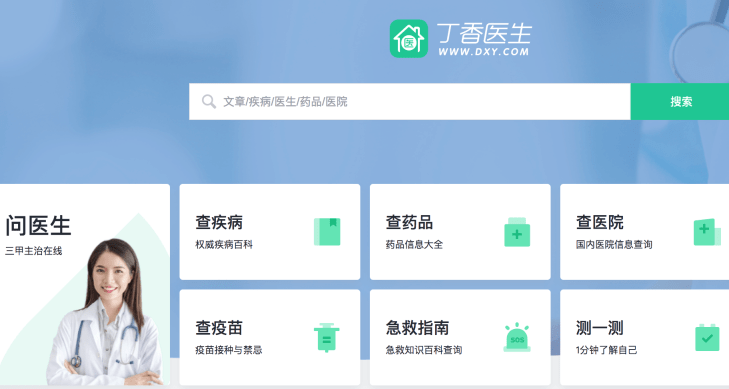DXY, a 20-year-old online healthcare community for Chinese consumers and healthcare organizations like Pfizer, announced this week that it has raised $500 million in its Series E round led by private equity firm Trustbridge Partners.
Existing backer Tencent and Hillhouse Capital’s early-stage focused GL Ventures also participated in the round, which lifted the firm’s total funding to over $680 million to date. DXY’s earlier investors include Xiaomi founder Lei Jun’s Shunwei Capital, and DCM.
The company started out as a knowledge-sharing platform for doctors and has over time added a consumer-facing aspect by bringing wellness advice and medical consultation services to the public — that is, steps that patients can take at home before having to go to the hospital.
As the pandemic took hold, hospitals and people around the world rushed to shift their activities online, spurring demand for healthcare apps. DXY responded swiftly and was among the first in China to introduce a real-time COVID-19 tracker at the beginning of the outbreak.
Today, healthcare organizations can also use DXY as an advertising channel, a learning platform as well as a recruiting site, ways for the company to generate revenue.
Since its inception, the site has attracted some 130 million consumers, more than 9,000 medical institutions, and 50,000 doctors who have provided online consultation. The platform has a current user base of 20 million and counts Eli Lilly, Pfizer and AstraZeneca among its major clients.
DXY plans to spend its new proceeds on buttressing the two pillars of its business — support for healthcare professionals and services for consumers. It will do so by strengthening cooperation with hospitals, consumer goods enterprises and pharmaceutical companies, including jointly funding R&D in products or new consumer applications.
On the consumer front, the company faces some strong opponents in China including the likes of SoftBank-backed Ping An Good Doctor, Alibaba Health, JD Health and WeDoctor, which is also backed by Tencent.
The article updated with more details on the investment. It previously incorrectly stated that Legend Capital was an investor.
